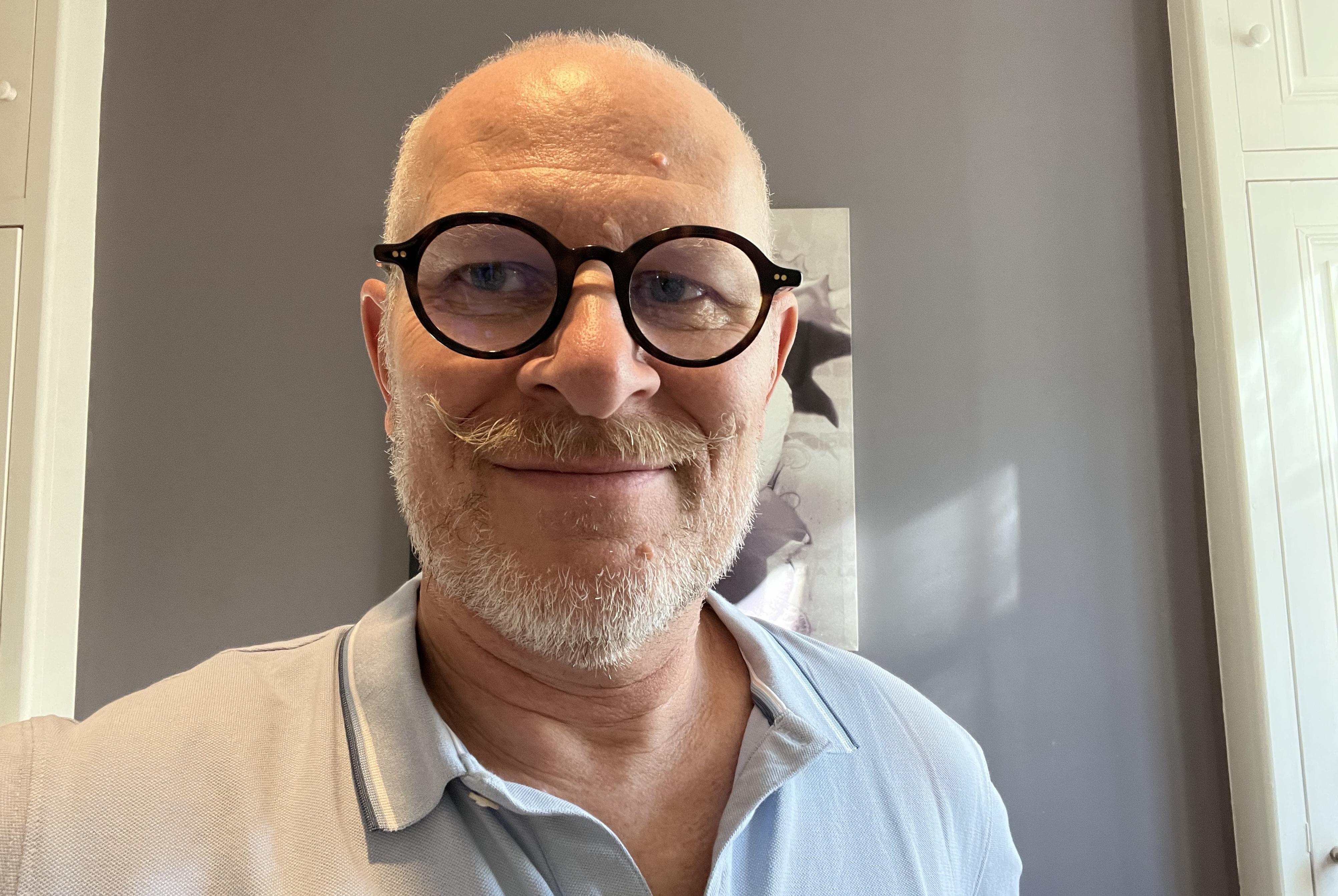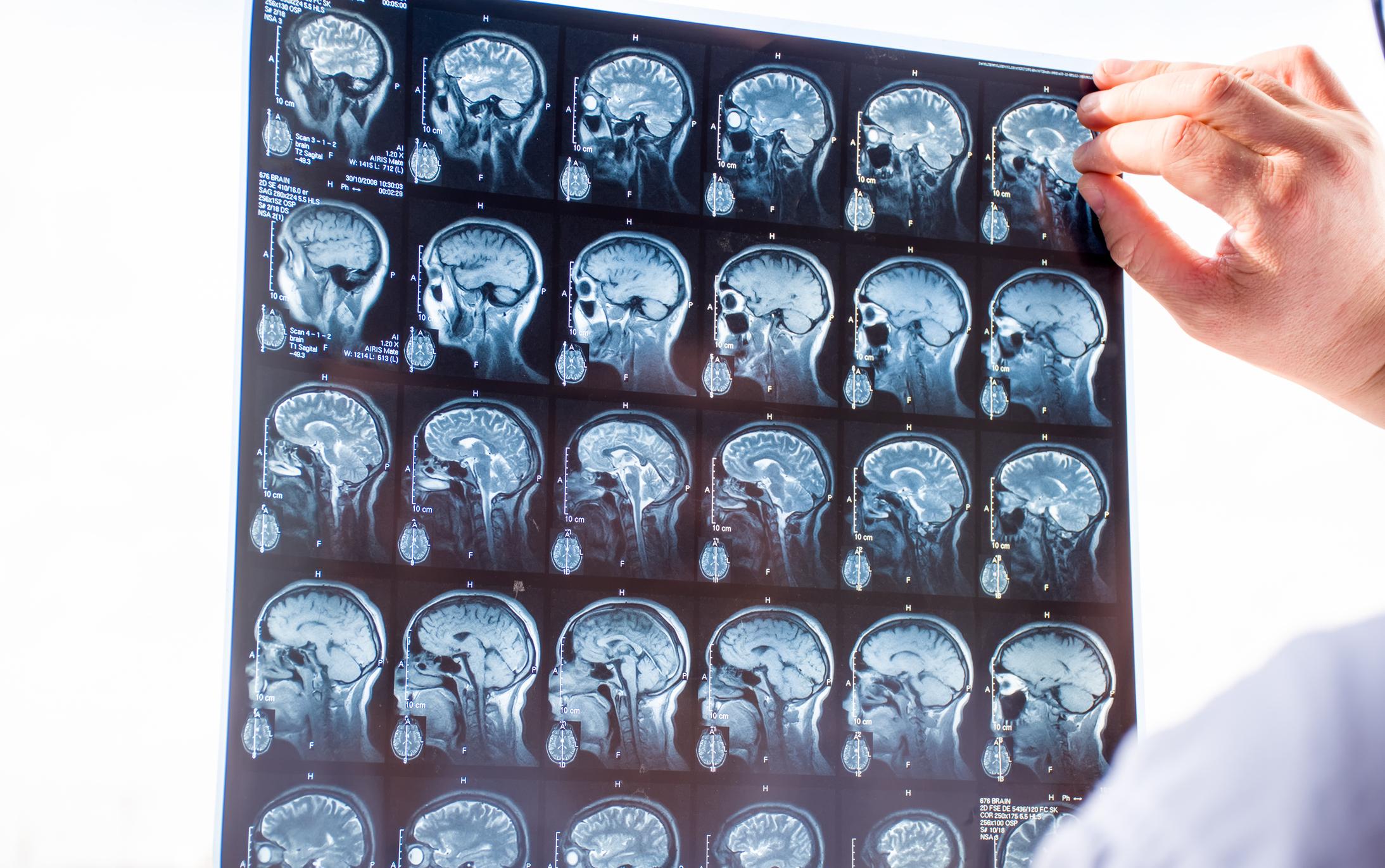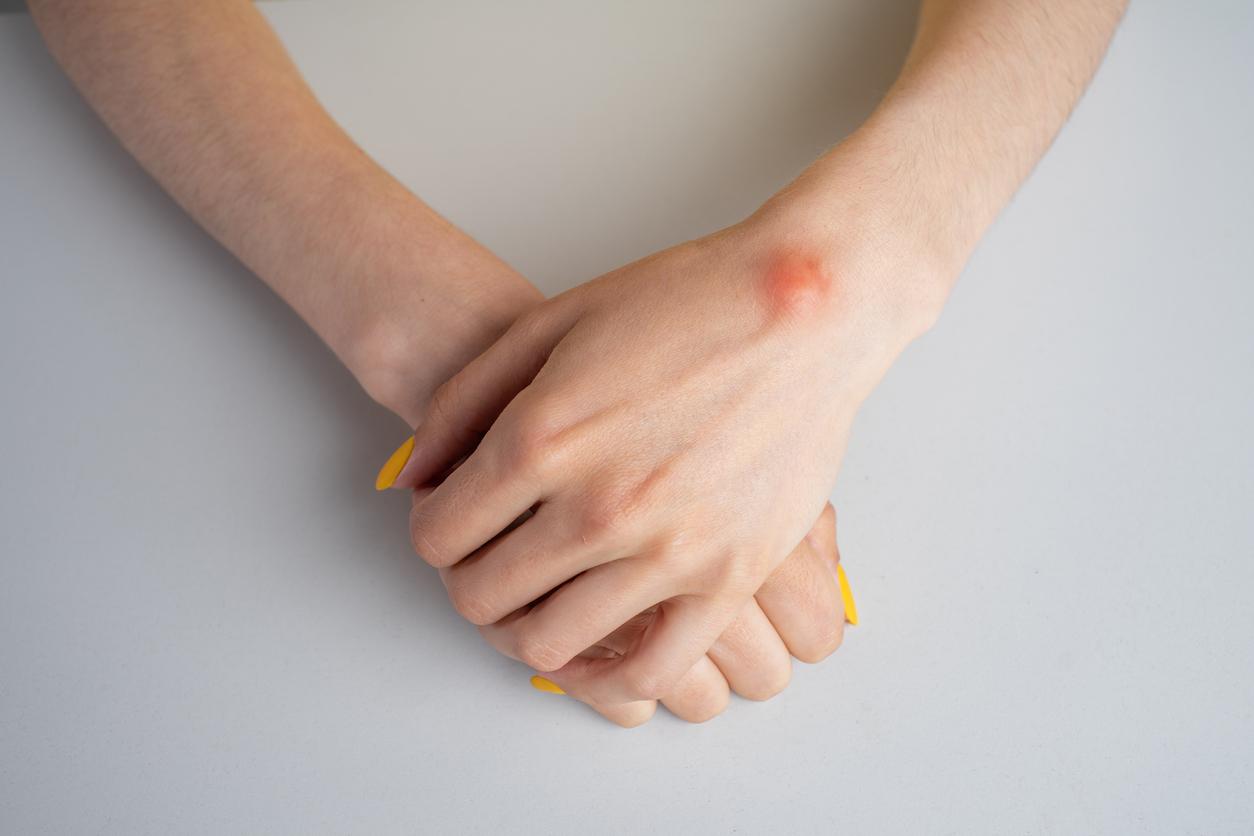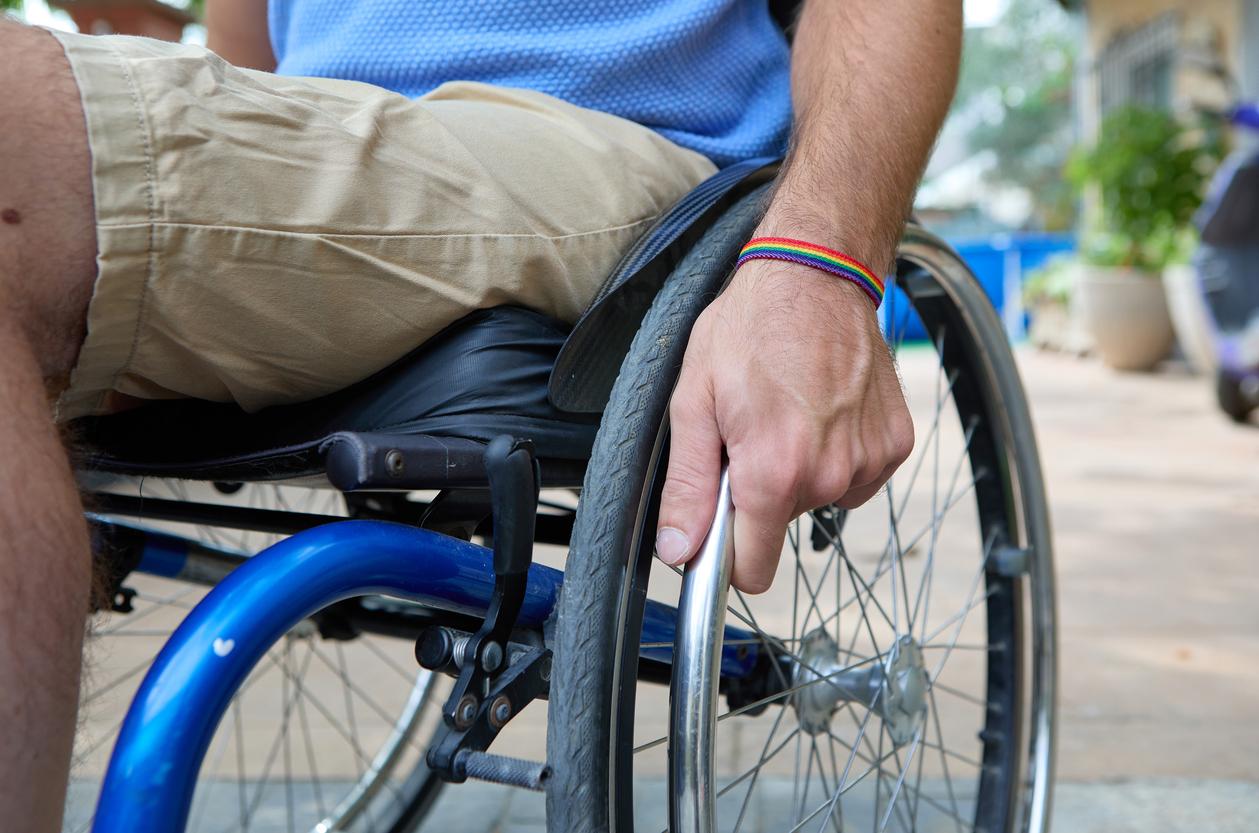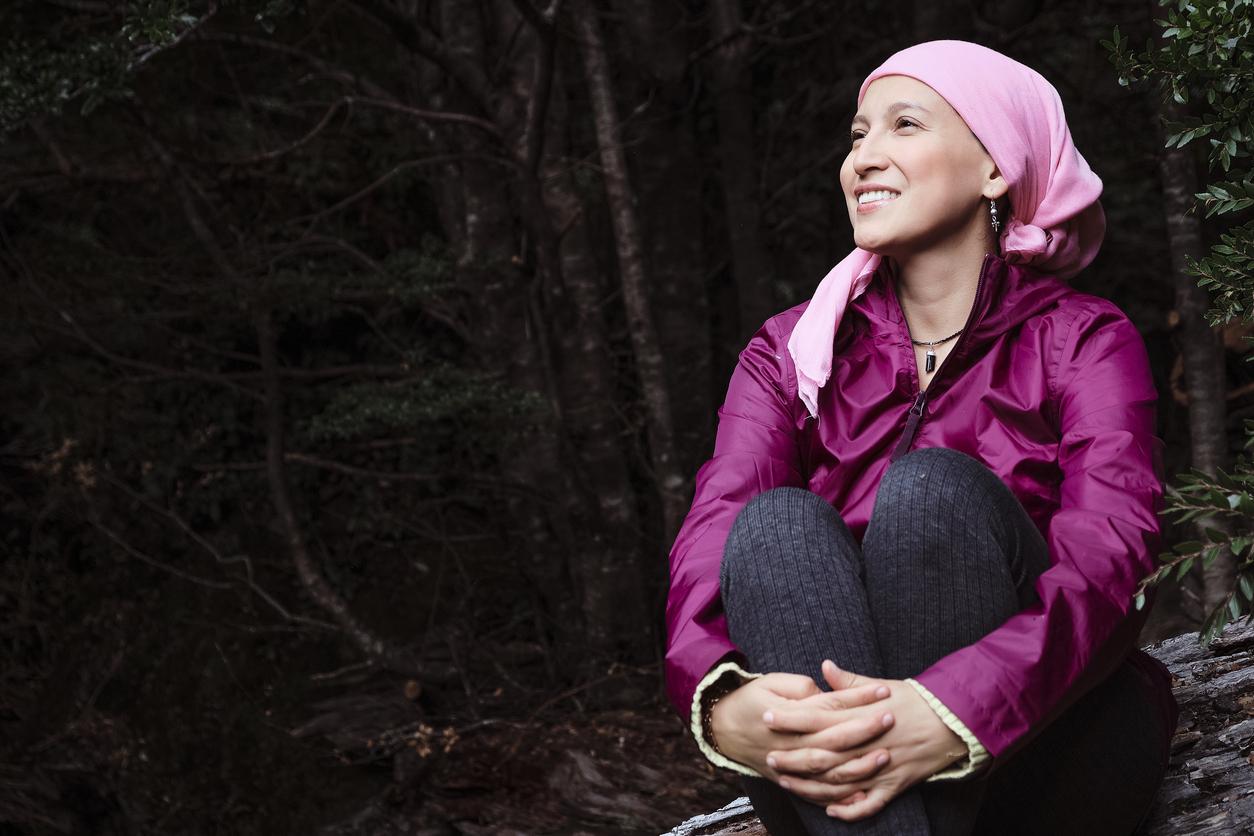After months of constant crying and doctor visits to understand her baby’s disorders, Cécile Decoatpont discovered that her son suffered from West syndrome, the most common form of rare epilepsy in infants. She opens up about her fight for Antoine, now 10 years old.

- Antoine, Cécile’s little boy, was a baby who was never calm. He cried 20 hours out of 24.
- An encephalogram, carried out after 10 months of medical wandering, revealed that the baby had West syndrome.
- West syndrome is a rare disease. It is characterized in infants by bursts of spasms, psychomotor stagnation or deterioration, and abnormal brain activity. It is the most common type of epilepsy in infants.
While all babies cry, the incessant sobbing of her son Antoine, then only a few weeks old, quickly alerted Cécile Decoatpont. After many visits to doctors and emergency rooms, it turned out that the little boy had a rare and serious neurological condition: West syndrome.
West Syndrome: “All affected areas of the brain are irrecoverable”
Antoine was born on November 30, 2013. His arrival was a source of joy and happiness for the family. But as the days and weeks went by, Cécile – already the mother of a little girl – realized that something was wrong. “I had a child who was never calm. He cried all the time. Eating was complicated, sleeping was complicated, bathing was complicated. Nothing ever went right. He could cry 20 hours a day.”remembers the mother.
Unable to find the keys to stopping her child from crying, Cécile decides to seek help and… faces a significant difficulty. “When you go to the doctor and say your baby is not well. He will listen to the heart, the lungs and everything will be normal, because everything is really just coming from the brain.”
Indeed, West syndrome is a rare epilepsy in infants. This pathology is characterized by spasms “For example, my child would raise his arms three times in a row. But because he was restless, it was difficult to identify as a symptom,” specifies the mother. The other symptoms are a halt in psychomotor development and then abnormal electrical activity. This last point, which is essential for making the diagnosis, can only be detected by an encephalogram. However, doctors do not have the reflex to prescribe one to babies who are “not doing well”.
“Often, when we have a baby who cries a lot, doctors tell us that he has gastroesophageal reflux. They then give a first-line treatment for this disorder. Logically, we don’t see any improvement. When we go back, we are told: wait for the diversification of food when he moves on to purees, it will be better.”
“A baby cries”, “each child has their own rhythm”… Cécile has heard many reassuring words, sometimes condescending or even derogatory, during her numerous meetings with doctors and pediatricians.
“One day, I went to the emergency room because I was physically and mentally tired of my baby crying. The doctor told me: I’m going to prescribe earplugs so you won’t hear him cry anymore and you won’t come to the doctor anymore.”
But these visits without neurological investigations waste precious time. Indeed, each epileptic seizure damages the brain a little more. “All affected areas of the brain are irrecoverable”deplores Cécile. We must act quickly to limit the damage and injuries. The delay in diagnosis is a real problem for this disease which affects very young children.
Diagnosis: “I was happy, because after months of wandering, we had found it”
Finally, the diagnosis of West syndrome was made when Antoine was 8 months old. Cécile remembers perfectly the events that allowed her son’s disorders to be named. At that time, her husband worked outside the marital home all week. “So I looked after the children on my own from Monday to Friday. On the weekends, my husband could see that it was complicated, but he hadn’t fully appreciated it. In the summer, he had three weeks of vacation and was at home with me. At the end of the first week, he told me: this can’t be done, there’s something wrong with him. This child is unbearable, I’m taking him to the emergency room. I told him, go alone, because I’m tired of being told off.”
When she arrived at the emergency room, her husband found a sympathetic ear and the little boy was taken under observation for 24 hours. “Maybe it’s because it’s rarer for a dad to come or he came across an intern who had more time. But my husband was heard more than me when he said that things weren’t going well.”remarks Cécile.
Seeing the baby’s agitation and the amount of crying, the doctors performed various tests on him, including an encephalogram which revealed Antoine’s abnormal brain activity.
“For the general public, an epileptic seizure is a person who falls and trembles and that was also the case for me. In a baby, it is not at all like that. A baby who has epilepsy will, for example, blink very frequently, keep their arms in the air… Signs that are difficult for adults to spot.”explains the mother.
When the doctor revealed that Antoine suffered from West syndrome, a severe form of infant epilepsy, Cécile’s first emotion was neither fear nor despair. “I was happy because after months of wandering, we had found it. Normally, I would have been devastated, but I took it very well.”
Rare disease and children: “We are alone in the process”
“After the diagnosis, my child was hospitalized right away. We finally felt taken care of. We thought we were going to be able to breathe.“But the couple quickly realized that while it was possible to stop the epilepsy, the brain damage that occurred during the seizures in the first 10 months of their baby’s life was not reversible. He would have significant after-effects as he grew up.
Cécile, who was due to return to work a month later, was forced to revise her plans in order to take care of her son. “We are alone in the process, we are not explained the aid or the procedures to be undertaken to obtain it. We have to search and struggle alone.”
Another source of concern: antiepileptic treatment can have significant repercussions on children, their brain function and their behavior. “These children are very nervous, agitated, they have sleep problems. So we no longer know if it is due to the illness or the treatment… and in the end our son is not getting better, even though he has taken treatment. It is difficult to accept.”
“Epilepsy apparently damaged the part of the brain linked to his concentration”
Although Antoine has not had any epileptic seizures since he was 10 months old, the boy, now 10 years old, has suffered many after-effects. His disability is estimated at 80%.
“The epilepsy has apparently damaged the part of his brain that is linked to his concentration, so he has attention deficit hyperactivity disorder. He can’t stay focused. He’s constantly switching from one activity to another. This makes it very difficult for him to learn at school.”
He also has autism spectrum disorder and regularly experiences auditory and visual hallucinations. “The other day I picked him up from the pool and he explained to me that he had gills growing. He’s not kidding when he says that, he’s very serious. He gets angry if you don’t believe him.”
Antoine also suffers from an executive function disorder. He cannot plan activities. For example, when he goes to the gym, he will not say to himself before leaving: I have to get something to drink for when I am thirsty. “He can’t anticipate. We have to manage everything for him. We have a routine in the morning: he gets up, he brushes his teeth, he gets dressed. I have to stay nearby to verbalize everything… otherwise he does his first task and waits. He forgets what he has to do.”
West Syndrome: “The condition is scary so some schools have refused to take him”
Today, the young boy who benefits from an AESH (accompanying students with disabilities), is in school. But it was difficult to find him a school. “The pathology is frightening, so some schools refused to take him, others accepted, but under drastic conditions: no canteen, no recess, no afternoon… We had to turn to the private sector.”
And beyond school issues, the Decoatpont family also has to juggle administration and health services. “The procedures are very complicated. Sometimes you want to give up on certain aids because it is too complicated and time-consuming.”explains Cécile.
“We often feel like we’re being taken for liars, that we’re trying to make money from our child’s health problem. The hardest thing now is having to fight non-stop: for him to go to school, for him to get help at school, for him to get the right doctor for his problems, for him to get the help he’s entitled to…”
Having worked so often with health services and professionals, Cécile recognises that many of the obstacles and lack of listening encountered can be linked to tensions in these sectors. “We see the distress of caregivers, of the MDPH (Maison Départementale pour les Personnes Handicapées, Editor’s note) which does not have enough resources, of schools… but we cannot bear everyone’s distress. We already have that of our child to manage”laments the mother.
West Syndrome: “I want to use my journey and his to help others”
To help families cope with the upheaval caused by this rare neurological disease and navigate the administrative procedures, Cécile created the Facebook group last March. Named “The sun rises in the West”the beginnings of a future association.
“At first, I was very taken up by my son’s illness. It was impossible to get involved in community life. To be effective and useful, you have to take a step back and stop being angry. Today, I am ready to do it.”
“The association is not for my son, but for others. I want to put my journey and his at the service of others. So, the mistakes we may have made, others will not. We must take a step back, analyze what we have done.”
On the Facebook group, discussions between families affected by the syndrome have already highlighted a serious problem. “There is a major supply problem with an antiepileptic drug prescribed for West syndrome called Sabril. It is given as a first-line treatment to many patients. It is currently out of stock. And there is no equivalent to replace it.”
This difficulty in obtaining the medication is dangerous for the health of children, since their treatment must never be interrupted until they are 3 or 4 years old. Parents must resort to the D system to ensure continuity of the doses. For Cécile, this situation – which is far from being unique to this disease – is unacceptable. “It is not normal that we cannot treat with a known medicine, that there is no anticipation.“
Regarding the future of her son Antoine, Cécile admits that she still has many questions: “Will he be independent? Will he be able to work? We’re not sure he’ll be able to do it, it’s scary. But my husband and I are doing everything we can to give him what he needs to be independent.”
Cécile is determined to continue her fight. “You have to fight… Even if there are days when you can’t take it anymore, you have to move forward. You have to keep your sense of humor. For example, when my son has his hallucinations, I try to laugh about it. For example, when Antoine told me he had gills, I replied: that’s good, we’re going to change our diet and look for plankton. It’s better to take it like that, otherwise, it’s sad. But you have to train, it’s not innate. I admit that.”









